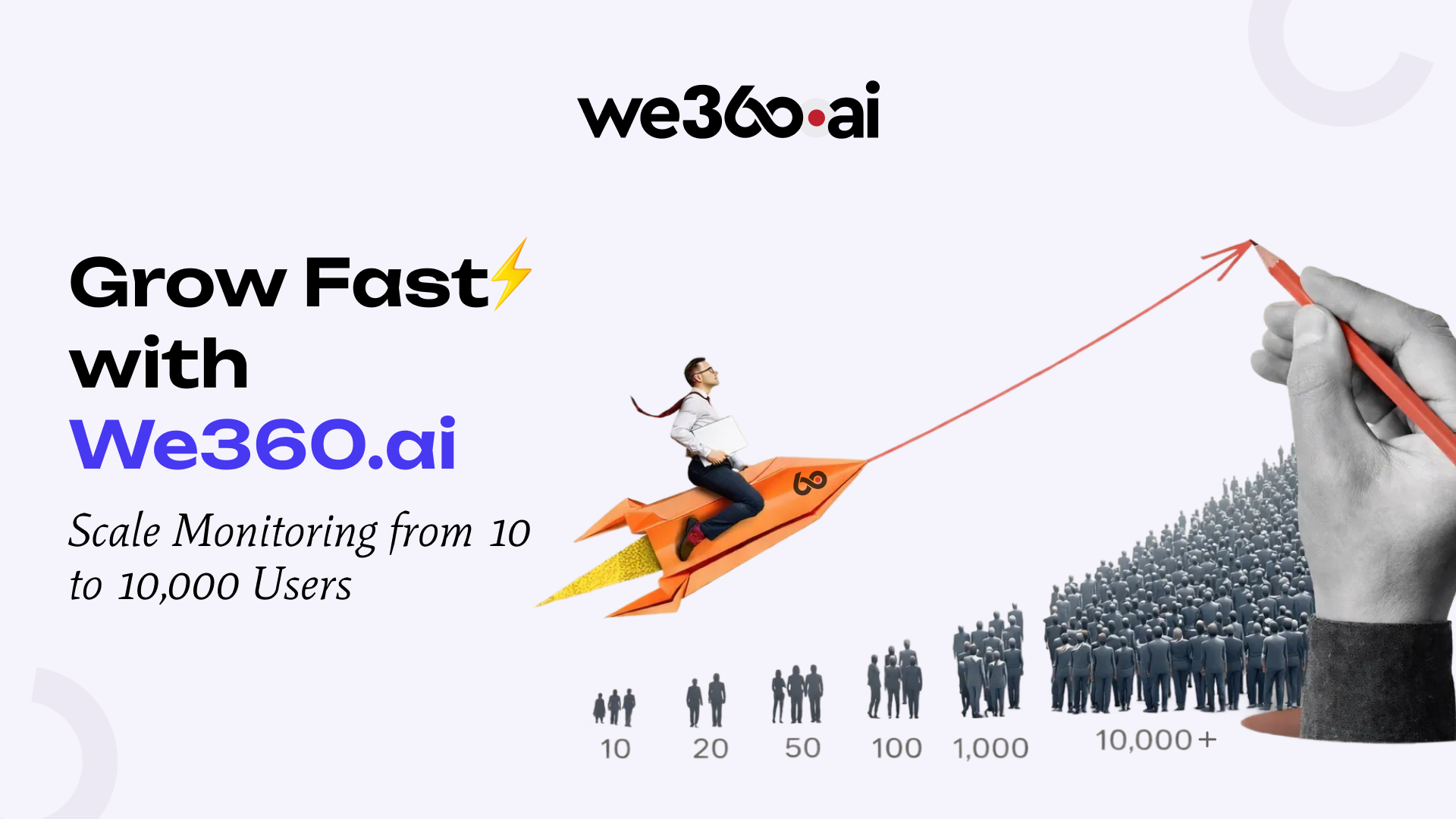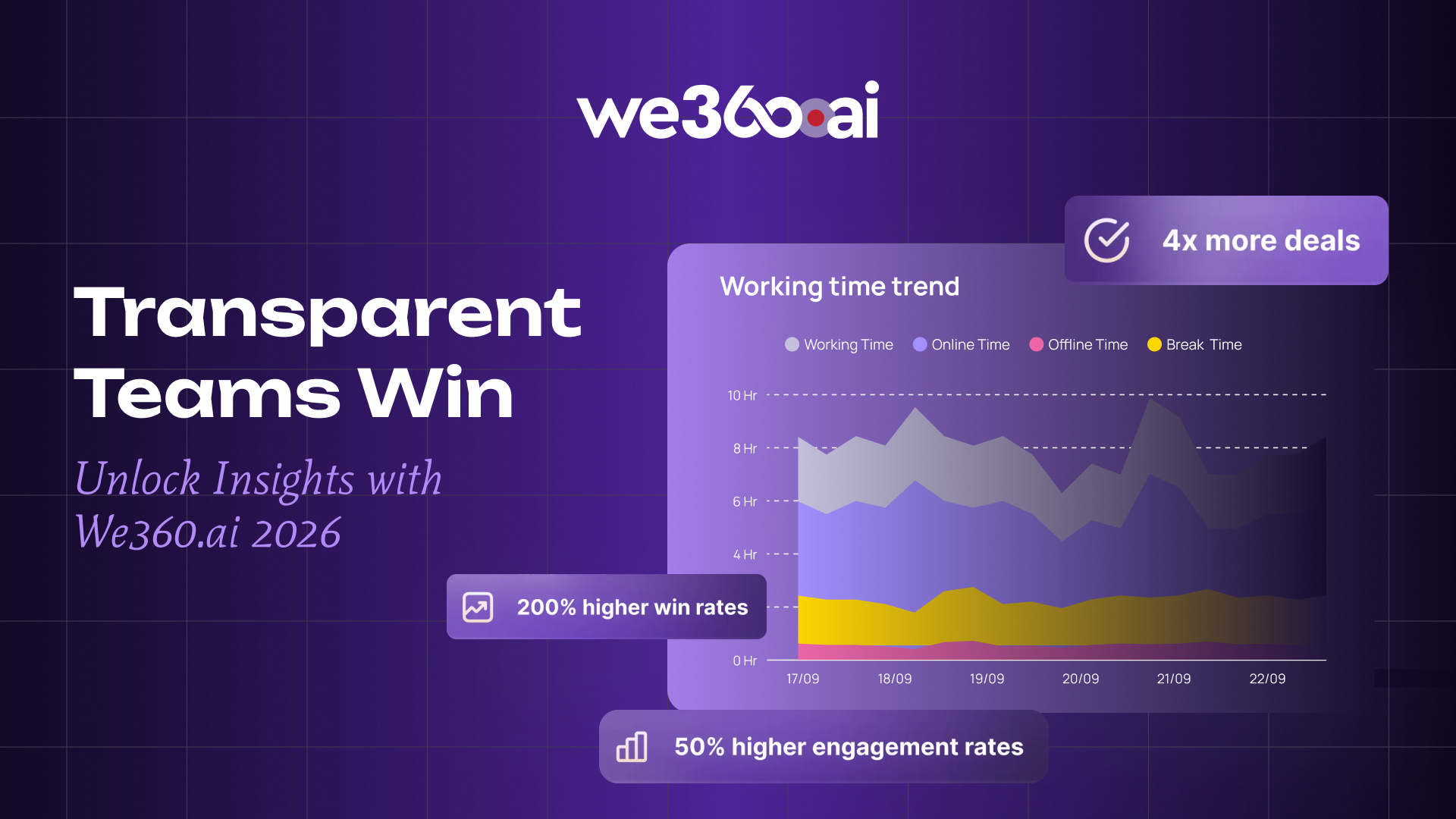These days, organisations are constantly seeking ways to achieve more with less. To scale their operations and maximise efficiency, companies are exploring innovative tools and techniques to help manage their workforce.
A key priority in this effort is tracking productivity, which can provide critical insights into how resources are utilised during the scaling process. One way to achieve this is by utilising software and tools that help managers and employees better understand the time spent and identify improvement areas.
Two such tools are productivity monitoring software and time tracking tools, which offer valuable insights into employee performance and work patterns.
However, despite their similarities, these tools serve different purposes and impact employees differently.
In this blog post, we'll explore the differences between productivity monitoring software and time tracking tools and their benefits and potential drawbacks. By understanding these distinctions, businesses can make informed decisions about the right tool for their needs and create a more productive and engaged workforce.
Productivity Monitoring Software
Productivity monitoring software is a tool that allows businesses to monitor the productivity of their employees. It tracks various metrics, such as the amount of time spent on each task, the number of tasks completed, and the employee's overall productivity.
Managers and supervisors often use this software to identify areas where employees may be struggling or where they can improve their performance.
Benefits of Productivity Monitoring Software:
- Improved Performance: By identifying areas where employees can improve their productivity, productivity monitoring software can help them to work more efficiently and effectively.
- Real-time Feedback: Employees receive immediate feedback on their performance, which can help them correct course and make real-time adjustments.
- Insights and Analytics: With productivity monitoring software, managers can gain insights into employee behaviour and work patterns, which can help them to identify trends and patterns and make data-driven decisions.
- Goal Alignment: Productivity monitoring software can help align employees' work with overall business goals and objectives, ensuring that everyone is working towards a common goal.
However, there are also potential downsides to using productivity monitoring software. Some employees may feel that they are being micromanaged or that their privacy is being invaded.
To avoid this, it is important for businesses to be transparent about their use of productivity monitoring software and to explain the benefits to their employees.
Time Tracking Tools
Time tracking tools are another popular tool for improving productivity. These tools allow employees to track the amount of time they spend on each task throughout the day. Freelancers and remote workers often use time tracking tools, but they can also be useful for in-house employees who need to track their billable hours or time spent on specific projects.
Benefits of Time Tracking Tools:
- Accurate Time Tracking: With time tracking tools, employees can accurately track the time they spend on different tasks or projects, which can help managers bill clients more accurately or better understand how much time is spent on specific projects.
- Improved Accountability: Time tracking tools can help hold employees accountable for their time and ensure they stay on task and meet deadlines.
- Resource Planning: Time tracking data can be used to plan resources and allocate time more effectively across different projects or tasks.
- Improved Project Management: With accurate time tracking data, managers can better understand how long different tasks or projects take to complete and make more informed decisions about allocating resources and managing timelines.
However, time tracking tools also have potential downsides. Like productivity monitoring software, some employees may feel that their privacy is being invaded or that they are being micromanaged. Additionally, time tracking tools can be time-consuming to set up and maintain, particularly for businesses with a large number of employees.
Effective employee performance tracking systems provide insights into individual and team productivity levels, enabling organizations to identify top performers and areas for improvement. By utilizing performance tracking software, managers can set goals, track progress, and provide timely feedback to optimize employee performance and drive overall organizational success.
Time tracking software is a valuable tool for businesses to monitor and manage employees' working hours. It provides accurate records of time spent on different tasks or projects, aiding in project time management and resource allocation. With time tracking software, businesses can optimize their time utilization, identify areas of improvement, and enhance overall productivity.
Employee time tracking software helps businesses accurately track and record employees' working hours. It enables organizations to monitor work hours, track breaks, and calculate overtime accurately. Employee time tracking software enhances payroll accuracy, ensures compliance with labor regulations, and facilitates fair compensation for employees' time and efforts.
Differences Between Productivity Monitoring Software and Time Tracking Tools
While productivity monitoring software and time tracking tools share some similarities, there are also important differences between the two. The main differences are as follows:
- Focus: Productivity monitoring software focuses on tracking productivity metrics, such as the amount of time spent on each task and the number of tasks completed. Time tracking tools focus on tracking the amount of time spent on each task.
- Purpose: Productivity monitoring software is used to identify areas where employees can improve their productivity and provide real-time performance feedback. On the other hand, time tracking tools are primarily used for tracking billable hours or time spent on specific projects.
- Implementation: Productivity monitoring software is typically implemented at the team or department level, while individual employees often use time tracking tools.
- Transparency: Productivity monitoring software may be perceived as intrusive by some employees, so it is important for businesses to be transparent about how the software will be used and to explain the benefits to their employees. On the other hand, time tracking tools are typically less intrusive and may not require as much explanation.
Project time tracking software enables businesses to monitor and manage time spent on different projects and tasks. It allows project managers to track project progress, allocate resources effectively, and ensure timely delivery. With project time tracking software, organizations can optimize their project management processes, improve time utilization, and enhance overall project success.
Choosing the Right Tool for Your Business
There is no one-size-fits-all solution when choosing between productivity monitoring software and time tracking tools. The right tool for your business will depend on your goals, team needs, and management style.
If you are primarily interested in improving productivity and identifying areas where your employees can improve their performance, then productivity monitoring software may be the right choice for your business. However, if you need a tool that can help you track billable hours or time spent on specific projects, then time tracking tools may be a better fit. Additionally, QR codes can be integrated allowing employees to conveniently track their tasks and time allocation by simply scanning the codes associated with specific projects or activities.
It is important to note that both productivity monitoring software and time tracking tools have the potential to impact your employees' work-life balance. If employees feel that they are constantly being monitored and tracked, it can lead to burnout and decreased job satisfaction.
To mitigate these risks, it is important to set clear expectations around the use of these tools and to provide employees with opportunities to provide feedback and suggest improvements.
Ultimately, the key to choosing the right tool for your business is to carefully consider your goals and objectives, as well as the needs and preferences of your employees. By doing so, you can select a tool that will help you achieve your goals while also supporting the wellbeing and productivity of your team.
Ending Note
Productivity monitoring software and time tracking tools can both be valuable tools for improving productivity and efficiency in the workplace. However, they serve different purposes and have different potential impacts on employees.
By carefully considering your goals and the needs of your team, you can select the tool that is best suited to your business and will help you achieve your objectives.
With the right tools in place, you can create a more productive, efficient, and engaged workforce that drives success for your business.
To know more, check out the We360.ai employee productivity monitoring software.














